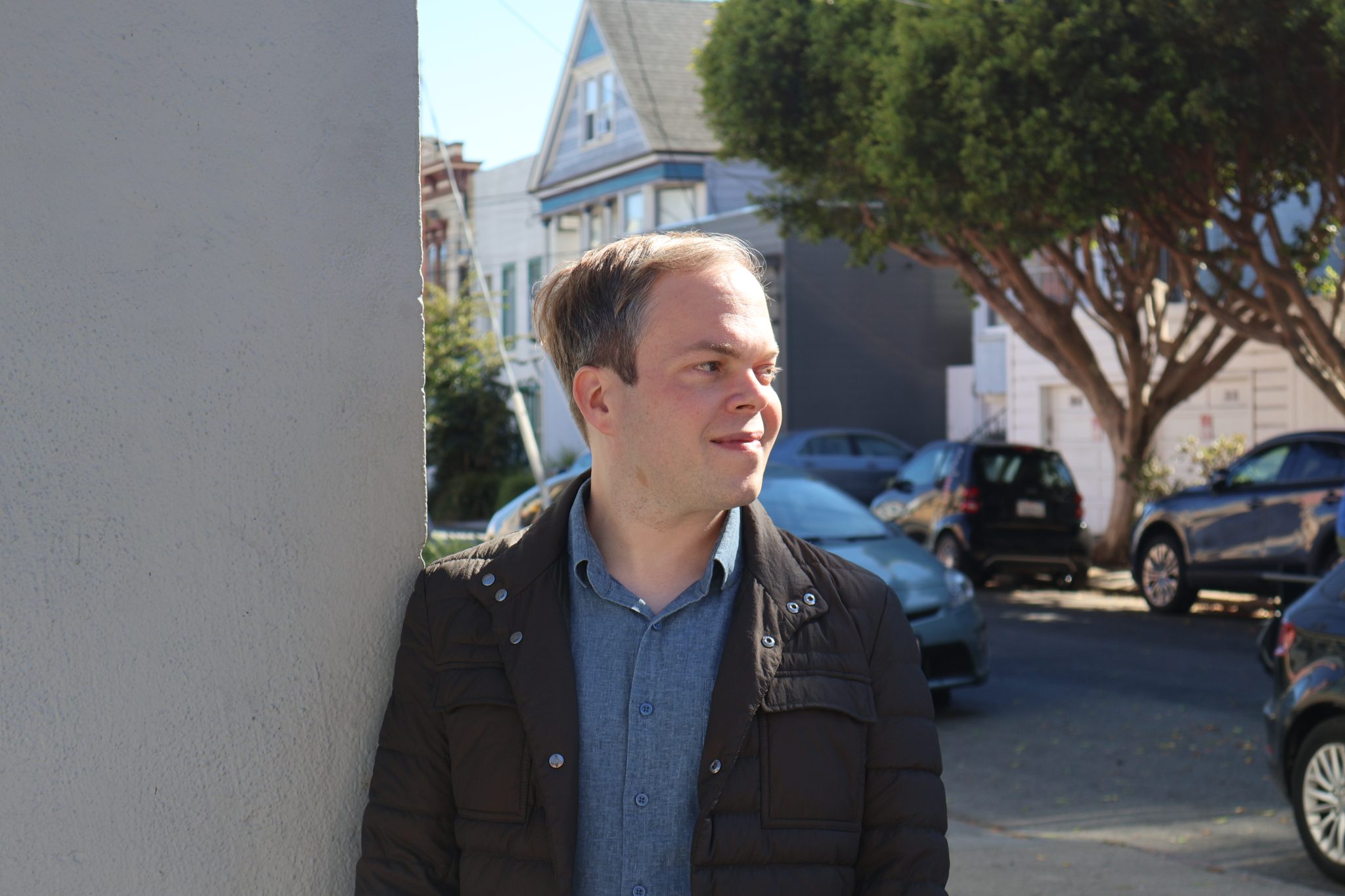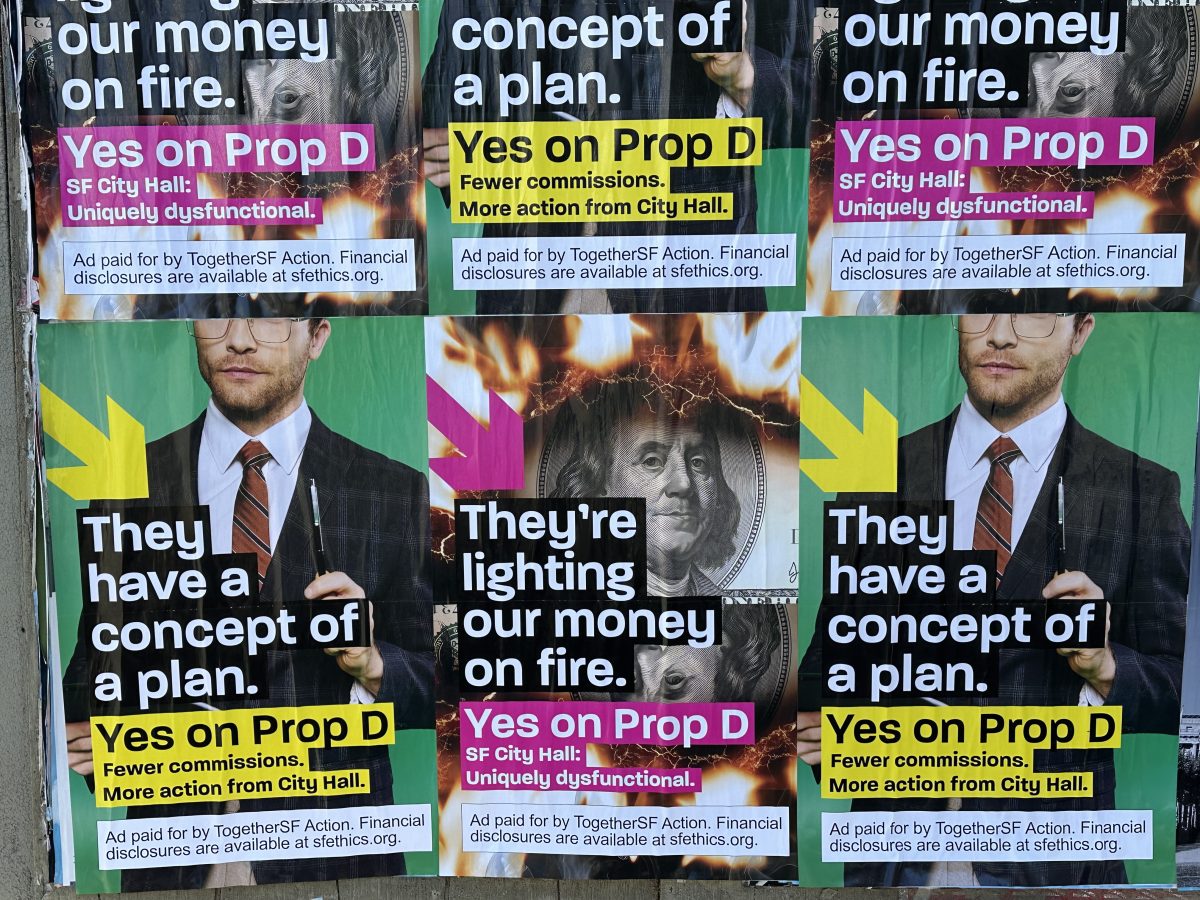On a recent afternoon, Blake Benthall walked past his old house at 915 Florida St. and remarked that the pirate ship cutout that had occupied the bay window is no longer there. That aside, the house looks much like it did 10 years ago.
But for Benthall, a lot has changed. On Nov. 5, 2014, in front of neighbors who had known him as an unassuming techie and Bible reader, he was arrested by the FBI for operating Silk Road 2.0, an illegal drug website, and whisked away to jail.
After his arrest, Benthall spent two weeks in solitary confinement in Oakland and eight months in federal jail in New York, and then several years lying low and paying his dues. That included working for free for the FBI, helping the agency uncover other cybercriminals. He had a child and moved back to Houston. During that time, he went by his middle name, Emerson, and didn’t tell anyone about his past. His probation ended this March.
Now Benthall, 36, is back in the tech world and doing what he initially set out to do in his career: Launch a (legal) tech company. His latest venture, Fathom(x), is a cryptocurrency startup which aims to verify crypto assets for businesses and the government. He is currently fundraising for the startup, and one of the FBI agents who arrested him back in 2014 is now an investor. Last month, he came back to San Francisco to visit some old friends, some of whom he hadn’t seen since his arrest, and fill them in on his tumultuous decade.
“I guess I’m resurrected,” said Benthall, who is still religious.
Silk Road 2.0
Benthall wasn’t your average drug criminal, but rather a 26-year-old software engineer who was desperately seeking a big break — and didn’t even use drugs. Originally from Houston, Texas, Benthall dropped out of Florida College, a private Christian college near Tampa, at the age of 20 to move to San Francisco and pursue his tech dreams.
The startup Benthall moved to California for failed after four months, and the other startups he joined over the next five years tanked, too. He felt defeated that he had yet to build a website that would be used at a large scale — until Silk Road 2.0.
“We had 100,000 sign-ups in the first 24 hours. It was crazy,” said Benthall.
Silk Road was an online bazaar that customers could access only through Tor, a browser designed to conceal each user’s IP address, and therefore their identity and location. The site functioned like Amazon or eBay, except it sold illegal drugs, which users could purchase with Bitcoin and an encrypted shipping address.
Silk Road’s first iteration was shut down by the FBI. In October 2013, “Dread Pirate Roberts,” or Ross Ulbricht, a physics grad from Texas who ran the site, was arrested in the science fiction section of the Glen Park public library branch. He was sentenced to two life terms and 40 years in prison, and is still serving his sentence.
In the aftermath of Ulbricht’s arrest, Benthall, operating under the pseudonym “Defcon,” ventured onto the site’s forum, which was still active, where users were discussing relaunching the site. He got an offer to rebuild a new one and, over the next few weeks, dived into the technically challenging and completely illegal work of making a virtually identical site. Silk Road 2.0 launched about a month later. By September of the following year, Silk Road 2.0 was generating $8 million in monthly sales revenue and had 150,000 active users, according to a press release from the FBI.
“That was an incredibly high-risk decision,” said Benthall. “That ruined my life in a lot of ways.”
The arrest
Around 11 a.m. on Nov. 5, 2014, Benthall was pulling out of his next-door neighbor’s driveway on Florida Street when some 20 FBI agents surrounded his car and drew their guns.
Benthall stepped out of his gray Tesla and put his hands on the windshield. Alerted by the FBI’s fleet of unmarked cars and flashing sirens, his neighbors watched him get handcuffed in the street and led back into his own house. When the FBI agents approached the door, they already knew the entry code, he recalled.
“I really felt like my life ended,” he said. “It was completely surreal. It’s a scene you’ve only seen in movies.”
Unbeknownst to Benthall, the FBI had been watching his every move for four months before they arrested him, and had completely penetrated the site’s server infrastructure and organization.
On the day of his arrest, Benthall sat on his bed while the FBI agents handed him printouts of evidence that they had collected from surveilling the site.
“This is not going away,” Benthall recalls the agents telling him. He deliberated how much information he should give them. The agents watched him as he knelt on his bedroom floor and prayed.
Taking a leap of faith, he made the unusual decision to cooperate with the FBI agents and volunteer the information he had before speaking to a lawyer.
“It was terrifying, because of course everyone should talk to a lawyer first,” said Benthall. But he knew he was guilty, and had likely slipped up on his site’s security at some point. “I’m not an experienced cyber criminal or a criminal of any sort. I’m just a tech geek that thought it would be fun to jump into this weird dark-net drug-lord career for one year, and completely failed.”
The agents stayed at the house for hours, debriefing Benthall. Luckily, the friends who he shared the apartment with were out of town. Benthall recalls sitting in the kitchen while the agents pulled out all kinds of things — family photos, electronics, his PlayStation — and asked him, “Is any data on this?”
Later that evening, Benthall was hustled off to jail in Oakland. But before leaving, the agents offered him one last vestige of normal life: Dinner.
As a last meal, Benthall requested a Quik Dog and a kale salad from Trick Dog, the bar on 20th Street.
Benthall said he had been praying for a way out of this illegal operation that he somewhat naively ended up running — and the arrest was his way out. “I feel like this was the only honest way out, to get completely caught,” he said.
“Ultimately, I’m relieved I don’t have to keep that a secret for the rest of my life.”





This dude gets 8 months and Ulbricht gets double life plus 40? Wtf?
I love this neighborhood. Maybe every neighborhood is like this if you get to know it well enough. But this really feels like an especially bizarre place in an especially bizarre moment. Thanks Mission Local for the highly entertaining read. Signed, Folsom St.
Can’t trust those Florida Street people, always up to no good. Signed, Hampshire+Harrison Street
Wishing him success. Nah…
Everything that’s wrong with SF tech, in one gross story. Including Mission Local selectively white-washing law breakers.
More evidence of systemic racism . Do people of color get a VIP dinner service before going to jail ?
> Do people of color get a VIP dinner service before going to jail ?
If they’ve demonstrated that they are willing to cooperate and the FBI sees them as having credible evidence (in the case, on 150,000 others, including big fish), generally yes.
The FBI uses snitches to put feather in their caps. Period. What’s even more obscene in this case is that now you have the FBI profiting off its snitches. Investing in a snitches enterprise? Are you kidding me? That you’re non-plussed about this is telling.
He’s no dread pirate roberts, clearly.
Maybe, if you’ve given the FBI an untraceable way to buy their drugs for the past 4 months.